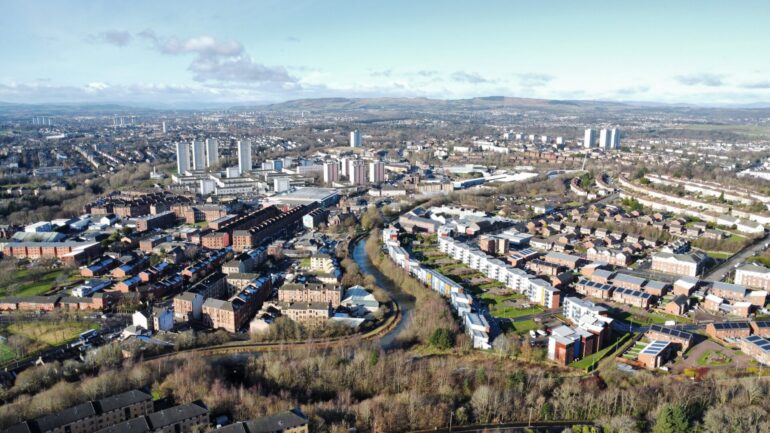Glasgow City Council is set to allocate over £115m across the current financial year to build new social and affordable homes – a 20% rise on last year’s budget.
The money will support the construction of around 1,600 new homes already planned, and more than 850 additional homes are expected to be approved this year.
Last year, the Affordable Housing Supply Programme (AHSP) funded the completion of almost 1,000 new homes and the start of work on another 750.
Councillor Ruairi Kelly, Convener for Housing, Development and Land Use at Glasgow City Council, said the funding would make a significant contribution towards the city’s housing emergency and help regenerate local neighbourhoods.
Most of the AHSP funds are used to build new homes, but some is also spent on buying private properties for housing associations and turning non-residential buildings into homes.
Last year, 90% of new approvals were for social rent homes, including 59 wheelchair-adaptable properties and over 100 three and four-bedroom family homes.
Another 175 properties were acquired or brought back into use to support homeless households.
This year, around £104m will be spent on over 1,150 starts, 940 completions and 870 approvals.
Nearly £12m will go towards buying more vacant or empty properties.
Kelly said: “Demand for homes, costs of labour and materials and increased standards all put a squeeze on budgets, and while the city has not known pressures like these in generations we are maximizing our efforts to deliver homes as quickly as possible.
“Innovative approaches to bringing vacant properties back into use and our social house building programme, which is by far the best in the UK, are just some of the ways we are tackling the housing emergency.
“The Affordable Housing Supply Programme allows the council to support housing associations to build more social and affordable homes of all sizes and we are doing that across Glasgow – changing lives and transforming communities.”
Kelly added: “Glasgow City Council and our RSL partners will also be in a position to accelerate this should more funding become available.”



